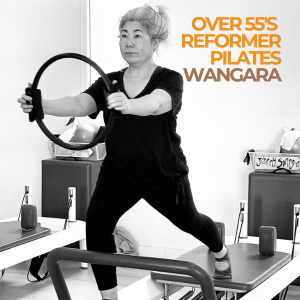With ageing comes failing eyesight, so correcting vision problems with a quick, relatively painless procedure is an attractive proposition. Laser eye surgery has ushered in a new era, offering the potential for crystal-clear vision. It introduced the prospect of complete independence from glasses or contact lenses. Activities like travelling, shopping, dancing, or walking could be decided on promptly without reservation.
Laser eye surgery cost has decreased over the past decades, and with benefits that last a lifetime, it’s a procedure that is a good investment in your health. But is laser eye surgery the right option for seniors? Let’s explore the benefits and considerations to help you decide whether this is the best option.
Understanding Laser Eye Surgery
Laser eye surgery corrects refractive errors, such as myopia (nearsightedness), hyperopia (farsightedness), and astigmatism. The most common methods include LASIK (laser-assisted in situ keratomileusis) and PRK (photorefractive keratectomy). These surgeries work by reshaping the cornea, the eye’s front surface, to improve how light entering the eye is focused on the retina.
It is considered a safe procedure for seniors who want permanent correction with minimal downtime. However, some seniors may be reluctant to undergo the procedure due to their age and health status.
Benefits Of Laser Eye Surgery
With all the benefits of laser surgery, it’s important to have realistic expectations. While laser eye surgery can dramatically improve vision, it might not necessarily provide ‘perfect’ or 20/20 vision. Furthermore, presbyopia, the need for reading glasses due to ageing, will likely progress even after surgery. These are some of the benefits:
- Improved Vision
As we age, dependence on glasses or contacts can become a hassle, sometimes even a safety hazard in the case of falls. Laser eye surgery can significantly reduce or eliminate the need for corrective eyewear. This means you can enjoy clearer, sharper, and more vibrant vision. However, there are rare instances when glasses are used post-op.
- Increased Independence
Seniors who undergo laser eye surgery can regain their independence and freedom. They no longer must rely on glasses or contacts to see clearly, which can be a hassle, especially when travelling or engaging in outdoor activities.
- Enhanced Quality Of life
Better vision can significantly improve a senior’s quality of life, boosting their confidence and self-esteem. Improved vision can enhance participation in activities like reading, driving, dancing, or hobbies, enhancing the overall quality of life.
- Cost-effective
While laser eye surgery may seem expensive initially, it’s a cost-effective solution in the long run. Depending on the type of procedure, condition of the eyes. Clinic branding and location. Researching and comparing prices is crucial to finding a reputable, affordable service provider. Over the years, you’ll save money on prescription glasses, contact lenses, and eye exams.
Considerations For Seniors
Since lasers ablate or remove superficial tissue, the cornea must be thick enough to handle this. For those with cataracts, retinal or optic nerve damage from diabetic retinopathy, glaucoma, and extremely high refractive error, laser surgery is not advisable.
In addition, seniors with certain health conditions may not be suitable for laser eye surgery. For instance, if you have diabetes, glaucoma, autoimmune diseases, or a weakened immune system, you may need to explore other options, as are those on medications that can cause blood thinning or affect wound healing.
Your doctor can evaluate your health and advise you accordingly, especially since some medications can impact surgery outcomes. It’s important to follow the post-operative instructions carefully to ensure that your eyes heal well since seniors may take longer to recover. However, both LASIK and PRK typically involve quick procedures with minimal discomfort, making them suitable for those in good health.
Laser eye surgery primarily corrects refractive errors. It does not address age-related eye conditions, such as cataracts, glaucoma, or age-related macular degeneration (AMD). Cataract surgery, which replaces the eye’s natural lens with an artificial one, is a more appropriate procedure if cataracts are present. Similarly, conditions like glaucoma or AMD need specific medical or surgical treatments instead of laser eye surgery.

A couple of adults on a morning run. AI generated
Conclusion
Laser eye surgery is a great option for seniors who want to improve their vision and enjoy activities without being hampered by eyeglasses or contact lenses. However, it’s essential to weigh the benefits and considerations before deciding. Consider all factors, including the nature of the vision problem, overall health, and expectations. An in-depth consultation with an ophthalmologist will provide the best guidance for making an informed decision. Although age is not a disqualifier for laser eye surgery, the decision should be individualized to each senior’s unique situation and eye health.















